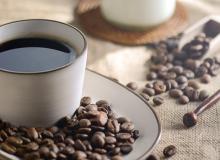As autumn approaches, blood sugar generally fluctuates greatly, especially fasting blood sugar, which tends to rise. What’s going on?
In autumn, the temperature difference between day and night is relatively large. The human body secretes a variety of hormones to regulate its own body temperature. However, the effects of these hormones are sometimes due to imbalances in the regulation of our own hypothalamus-pituitary-adrenal axis (neuroendocrine system). Therefore, Can cause abnormal fluctuations and increases in blood sugar.
Especially at dawn, the body's hormones will be secreted too much, which will cause blood sugar to be easily high. If the outside temperature drops, it will cause the body's hormones to be secreted too much again. A two-pronged approach for two reasons will increase fasting blood sugar.
Having said so much, how should we control blood sugar in autumn? Nono brings you 7 tips to teach you how to control sugar easily and live a healthy autumn.
1. Pay attention to keeping warm at night and in the morning. The temperature is relatively low at night and in the morning. Keeping warm will reduce the secretion of hormones in the body caused by external factors, thus avoiding high fasting blood sugar due to excessive and imbalanced hormone secretion.
2. You can soak your feet to warm up your body before going to bed. Coldness starts from your feet. Soaking your feet can warm up the entire body of sugar lovers, soothe the meridians and nerves, and smooth out the hormone secretion in the body.
3. Adjust your eating habits and eat high-protein and fat foods that easily cause blood sugar fluctuations during the day. Because the temperature fluctuates little during the day, blood sugar fluctuations after eating will also be reduced.
Appropriately adjust the snacking routine before going to bed. If you need to snack, you can eat some foods that take effect in a short time but should not last too long, such as apples and pears.
5. If fasting is too high, the dose and time of medication or insulin before going to bed should be appropriately adjusted so that the peak of medium or long-acting effects coincides with the time period when the body's hormone secretion is excessive due to external factors, thereby reducing fluctuations. If you need to adjust the dosage of insulin or medicine, it is recommended to communicate with the attending physician.
6. Increase blood sugar monitoring points regularly, grasp blood sugar fluctuations in a timely manner, and find solutions. It is necessary to increase the frequency of blood sugar monitoring in autumn. In your free time, you can monitor at 5 points (fasting when you get up in the morning, second of three meals, and blood sugar before going to bed). You can know the recent blood sugar status and make timely adjustments.
7. Moderate exercise. Traditional Chinese medicine teaches that autumn is the main time for collection. People with diabetes should exercise, but be careful not to exercise strenuously. Excessive sweating is not suitable for exercise in autumn. It is recommended to choose walking, Tai Chi, jogging, swimming and other exercise methods. It is advisable to sweat slightly during each exercise.

